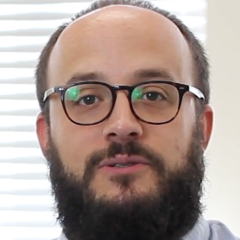You are not currently logged in. Please create an account or log in to view the full course.
Drug Development - 5.20
- About
- Transcript
- Cite
Fighting Disease – Edexcel GCSE (1BI0): Higher Tier
In this course, Dr Matt Ivory (Cardiff University) discusses how we fight disease covering topics 5.20, 5.21B, 5.22B and 5.23-5.25 in the Pearson Edexcel GCSE Biology Specification (9-1) for Higher Tier. We begin with: (i) how we make drugs used to treat disease, taking us through the story of how drugs are first developed, used in clinical trials and how weighing up the pros and cons of a drug result in their approval or rejection (Topic 5.20); we move on to (ii) a slightly more complicated way to treat drugs, using monoclonal antibodies and discuss how they are made and their uses (Topic 5.21B, 5.22B); following (iii) this we define non-communicable diseases and discuss some examples such as the diseases that can result from poor diet or smoking (Topic 5.23, 5.24); then we finish up (iv) by taking a deep dive into cardiovascular disease (Topic 5.25).
Drug Development - 5.20
In this first mini we look into how drugs are developed to fight disease, as brought up in topic 5.20 of The Pearson Edexcel (9-1) Biology specification. We start by discussing what drugs are and how they are made. Then break down some of the stages of how these drugs are tested in clinical trials. Then finish with discussing the use of placebos and how drugs are approved to go market.
Cite this Lecture
APA style
Ivory, M. (2023, June 06). Fighting Disease – Edexcel GCSE (1BI0): Higher Tier - Drug Development - 5.20 [Video]. MASSOLIT. https://massolit.io/courses/fighting-disease/cardiovascular-disease-5-25
MLA style
Ivory, M. "Fighting Disease – Edexcel GCSE (1BI0): Higher Tier – Drug Development - 5.20 ." MASSOLIT, uploaded by MASSOLIT, 06 Jun 2023, https://massolit.io/courses/fighting-disease/cardiovascular-disease-5-25

